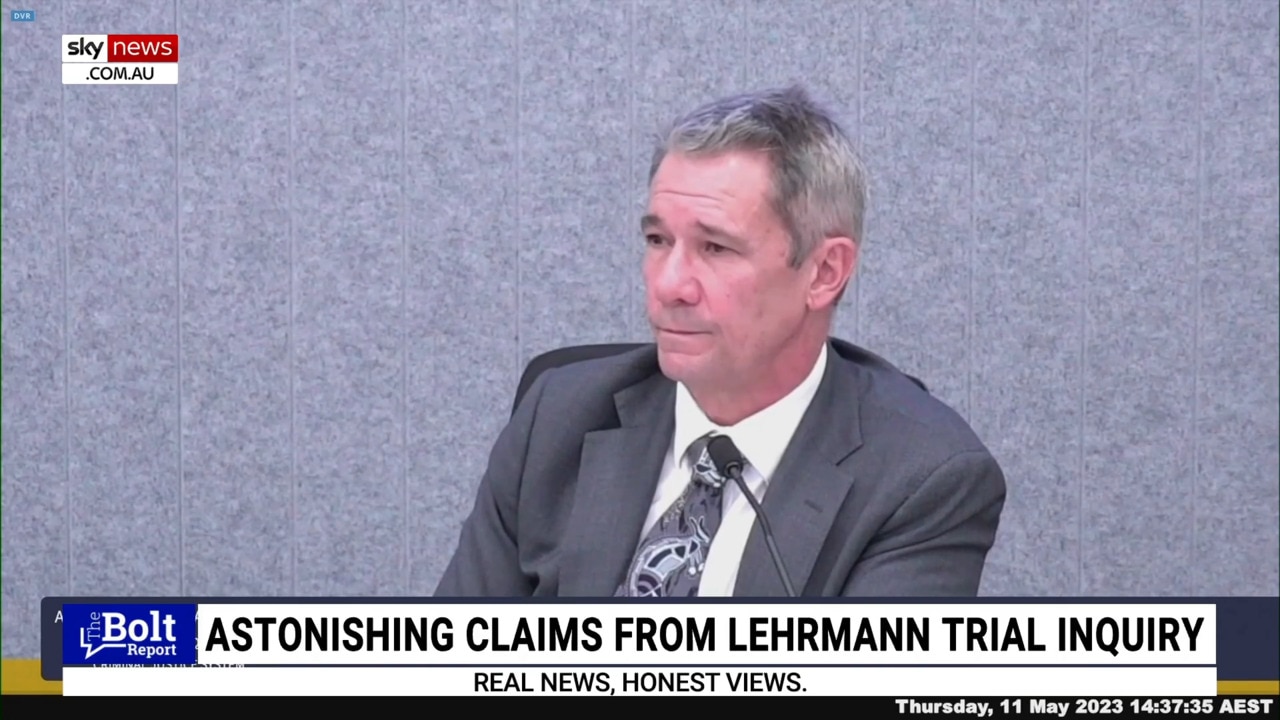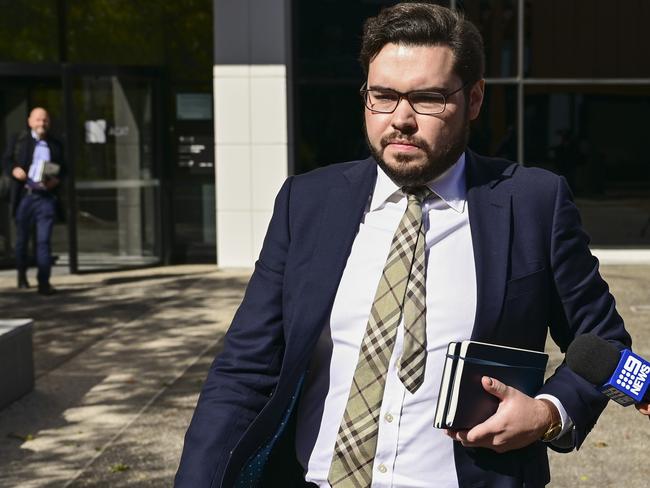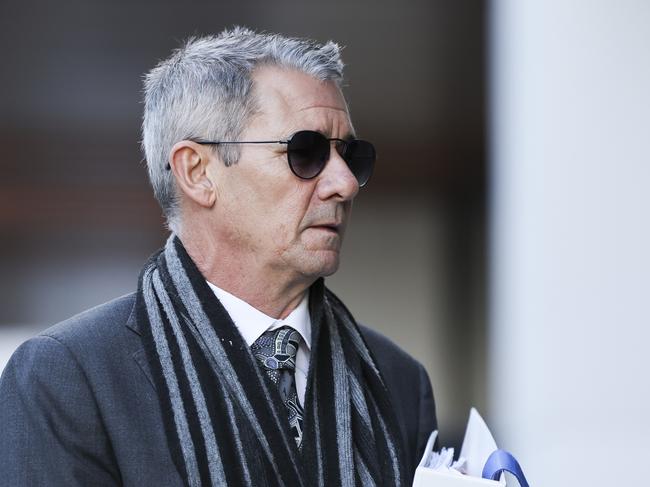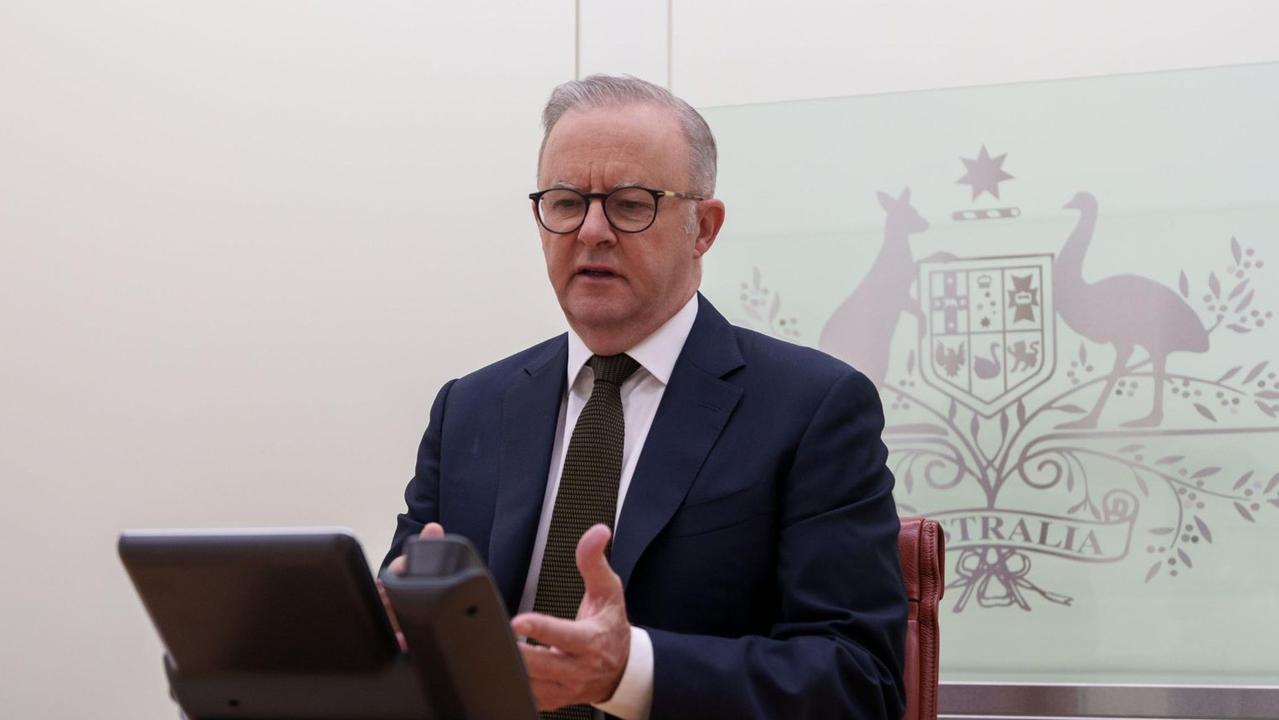Vikki Campion: Bruce Lehrmann case is fascinating — but there’s a bigger issue
Everyone in Canberra has an opinion after this budget week – on the evidence that has emerged in week one of the Sofronoff inquiry into the Lehrmann case, writes Vikki Campion.

Opinion
Don't miss out on the headlines from Opinion. Followed categories will be added to My News.
Everyone in Canberra has an opinion after this budget week — on the evidence that has emerged in week one of the Sofronoff inquiry into the Lehrmann case.
As staffers and journalists should have been trawling budget papers to hold the government to account, they were distracted by events across town in the inquiry into the ACT DPP’s aborted prosecution of Bruce Lehrmann.
Walter Sofronoff has been tasked by the ACT government to investigate claims and counterclaims surrounding the infamous Canberra trial which ended in a jury discharge and the case against Mr Lehrmann being dropped in its entirety by the DPP.
It beat the hell out of parliamentary Question Time because, at the ACT Chair of the Board of Inquiry people actually had to answer questions asked.
All eyes were on the DPP claiming and subsequently backtracking on claims of some political conspiracy between the AFP and people at Parliament House.

What happened that night in 2019 when Mr Lehrmann and Brittany Higgins went to Parliament House is of considerable and understandable public interest in light of the undisclosed taxpayer-funded settlement between the government and Ms Higgins.
But the Sofronoff inquiry is not looking at that. It is examining the conduct of the prosecution in the sexual assault matter, going to the heart of prosecutorial fairness.
Once matters are concluded in the ACT then perhaps the same forensic attention could be applied to the alleged purging of the facts in an entirely separate incident in the Northern Territory.
Sofronoff has done an incredible job highlighting serious issues within the ACT DPP, and he should turn his talent to the Northern Territory — broken politically, judicially and legally.

There is no shortage of men or women wanting to walk the parquetry floors and by art-decked walls of federal Parliament House, but swathes of Northern Territory police officers do not want to go to work at all, seeking leave and trying to quit the force after the treatment of Constable Zachary Rolfe following the death of Kumanjayi Walker.
As all television cameras were pointed firmly on the ACT, in the Northern Territory, documents detailing Mr Walker’s 104 convictions in seven years, his domestic violence relationship with an underaged girl, and how his parents failed to care for him were quietly published online, along with the coronial liaison report with the Northern Territory police (known as the Pollock/Proctor report).
Quieter still was the tabling of the Northern Territory ICAC report examining whether its then chief minister Michael Gunner with NT police commissioner Jamie Chalker by his side, politically motivated Mr Rolfe’s murder charge.
The reports were published just two weeks after Mr Chalker negotiated a hefty pay out after Chief Minister Natasha Fyles said she had lost confidence in him.
When Mr Gunner warned “consequences will flow” three days after Mr Walker’s death in Yuendumu, he insisted to the NT Police Association that his comments had been taken out of context.
Police said Mr Gunner’s comments were “morale destroying”. They urged him to withdraw or clarify and he refused. Police began to call in sick.
ICAC has come back this week with a report that could have been written by the former chief minister himself.
ICAC’s Michael Riches excuses Mr Gunner’s behaviour and says he “did not intend to prejudice the administration of justice, not to influence the police investigation” and that his comments had “no impact or influence on the decision to arrest Mr Rolfe”.
The officer who arrested Mr Rolfe denied to ICAC even knowing what the chief minister had said until after he made the arrest, telling ICAC: “I generally don’t follow the media about this stuff.”
The NT ICAC report exposes more questions than it answers.
Mr Riches over-explains Mr Gunner’s intentions – that he spoke without notes, apparently showing he didn’t “intend” to pervert the course of justice, while executive assistant commissioners, highly political in their appointments, assert that his comments had anything to do with the decision to arrest Mr Rolfe.
Mr Riches fails to mention the then ICAC commissioner Ken Fleming stepped down from his oversight role in relation to the investigation of the death of Mr Walker after he attended a protest rally in Alice Springs.
Mr Riches also fails to mention Mr Gunner appointed Mr Fleming to head an independent investigation into the incident.
Mr Chalker has a payout. Mr Gunner is happily working for Twiggy Forest, and Mr Rolfe is still fighting to clear his name.
Our process of law has absconded into Hollywood media guilt rather than the examination of facts by an impartial court and it is only thanks to the DPP in calling for an investigation that we know about their inconsistencies in Canberra.
Critically examining these two seemingly unconnected events does not come with the same glamour of media darlings excoriating the Morrison government.
Next week, the AFP giving bombshell evidence will be riveting, as flaws around the DPP are further exposed. And the events in the other territory should be given equal analysis.
Mr Riches, whose budget was slashed by the NT government by nearly 20 per cent last year, and who has publicly warned funding cuts will impede ICAC’s ability to investigate, has advised a further report will be presented in Mr Rolfe’s case but not necessarily provided to the public.
Both cases involve secret taxpayer-funded payments, elected officials and alleged political conspiracy – yet only one has received adequate attention.





